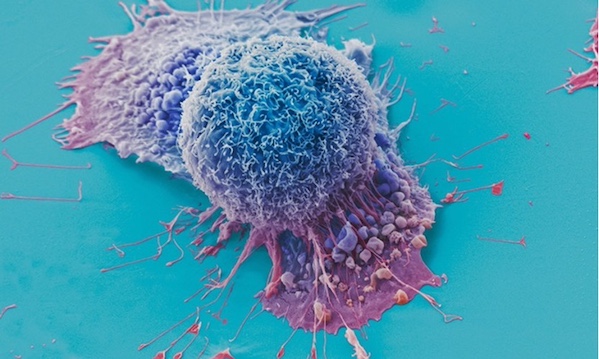AI Tool Precisely Matches Cancer Drugs to Patients Using Information from Each Tumor Cell
April 23, 2024
Source: drugdu
 486
486
 Current strategies for matching cancer patients with specific treatments often depend on bulk sequencing of tumor DNA and RNA, which provides an average profile from all cells within a tumor sample. However, tumors are heterogeneous, containing multiple subpopulations of cells, or clones, each potentially responding differently to treatments. This variability may explain why some patients either fail to respond to certain treatments or develop resistance. Single-cell RNA sequencing offers higher-resolution data than bulk sequencing, capturing data at the single-cell level. This approach to identify and target individual clones may lead to more lasting drug responses, although, single-cell gene expression data are more expensive to generate and less accessible in clinical environments.
Current strategies for matching cancer patients with specific treatments often depend on bulk sequencing of tumor DNA and RNA, which provides an average profile from all cells within a tumor sample. However, tumors are heterogeneous, containing multiple subpopulations of cells, or clones, each potentially responding differently to treatments. This variability may explain why some patients either fail to respond to certain treatments or develop resistance. Single-cell RNA sequencing offers higher-resolution data than bulk sequencing, capturing data at the single-cell level. This approach to identify and target individual clones may lead to more lasting drug responses, although, single-cell gene expression data are more expensive to generate and less accessible in clinical environments.
In a proof-of-concept study, researchers at the National Institutes of Health (NIH, Bethesda, MD, US) have developed an artificial intelligence (AI) tool that leverages data from individual tumor cells to predict how well a person's cancer might respond to a specific drug. This study demonstrates the potential of single-cell RNA sequencing in helping oncologists match effective therapies to their patients. In the new study, the team employed a machine learning technique known as transfer learning to train an AI model using common bulk RNA sequencing data, after which they used single-cell RNA sequencing data to fine-tune the model. This method was applied to existing cell-line data from comprehensive drug response trials, resulting in AI models for 44 FDA-approved cancer drugs that could predict cellular reactions to both individual and drug combinations.
Further testing involved data from 41 multiple myeloma patients treated with four drugs and 33 breast cancer patients treated with two drugs. The findings revealed that resistance in any single-cell clone could render the treatment ineffective, even if other clones were responsive. The model also successfully predicted resistance development in data from 24 patients with non-small cell lung cancer undergoing targeted therapies. The researchers noted that the accuracy of this approach can improve as single-cell RNA sequencing becomes more widely available. To facilitate broader use, the researchers have created a research website and a guide, dubbed Personalized Single-Cell Expression-based Planning for Treatments In Oncology (PERCEPTION), for applying the AI model to new datasets.
Source:
https://www.labmedica.com/immunology/articles/294800933/ai-tool-precisely-matches-cancer-drugs-to-patients-using-information-from-each-tumor-cell.html
Read more on
- Gusekirumab Injection Accepted by CDE, Multiple Pipelines Advancing Simultaneously March 4, 2026
- Yifan Pharmaceutical’s teriparatide injection has been accepted by the CDE (Center for Drug Evaluation), adding a new domestic player to the osteoporosis treatment field March 4, 2026
- //news.yaozh.com/archive/47318.html PD-1 sales surge March 4, 2026
- A major breakthrough! Roche’s oral BTK inhibitor achieves its third Phase III clinical trial victory, a game-changer in the multi-billion dollar MS (manufactured pharmaceuticals) market. March 4, 2026
- GB19 Injection Approved for Clinical Trials of Cutaneous Lupus Erythematosus March 4, 2026
your submission has already been received.
OK
Subscribe
Please enter a valid Email address!
Submit
The most relevant industry news & insight will be sent to you every two weeks.



